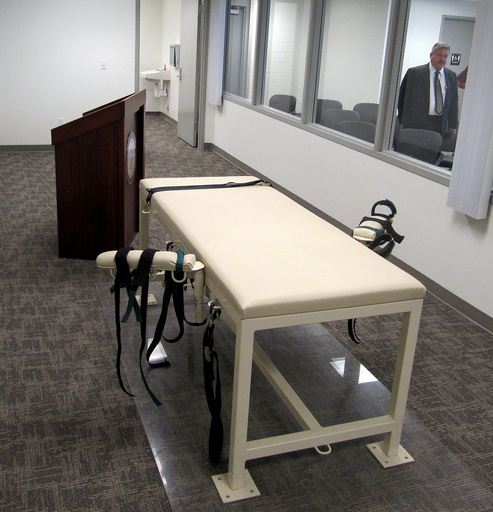BOISE, Idaho — A coalition, including The Associated Press, has initiated legal action against Idaho’s chief prison authority, asserting that the state is unlawfully restricting public visibility of lethal injection executions. The lawsuit, filed in the U.S. District Court in Boise, challenges Idaho Department of Correction Director Josh Tewalt’s practices regarding the execution process.
The media organizations argue that the First Amendment grants the public the right to observe the entire execution procedure, specifically highlighting the moment when lethal injection medications are administered to the condemned individual. Previously, Idaho prison officials have obscured this part of the execution behind barriers or walls during the three executions that have taken place in the last fifty years.
Attorney Wendy Olson, representing the coalition, emphasized in court filings that the case underscores the media’s essential role in monitoring capital punishment by providing independent public oversight of Idaho’s execution practices. She referenced a ruling from the 9th U.S. Circuit Court of Appeals, which has consistently asserted the public’s right to observe executions in their entirety, including a prior ruling that resulted from a similar lawsuit in 2012 involving AP and other news outlets. This earlier case mandated that the media be allowed to witness the insertion of IV lines during executions.
“The Ninth Circuit has been very clear on this matter,” Olson mentioned, citing a 2002 decision which noted that public awareness is crucial in evaluating whether lethal injection aligns with ‘the evolving standards of decency marking the progress of a maturing society.’”
A spokesperson for the Idaho Department of Correction, Sanda Kuzeta-Cerimagic, stated that the department had not been officially notified of the lawsuit but affirmed via email that their execution methods have consistently met or exceeded First Amendment requirements for observation during the execution process. She expressed that the Idaho Department of Correction is dedicated to maintaining transparency in its execution procedures.
In previous discussions with lawmakers, Tewalt and his colleagues have expressed concerns that revealing details about the execution team or the source of the lethal drugs could jeopardize Idaho’s capacity to administer capital punishment, as it might deter qualified individuals from participating in the process. Nonetheless, the lawsuit points out that media witnesses can already see some execution team members, albeit with their identities concealed by masks and headgear. The claim suggests that a similar approach could safeguard the identities of the team members responsible for administering the lethal medications.
Idaho has conducted only four lethal injection executions since the U.S. Supreme Court reinstated capital punishment in the 1970s. During the execution of Keith Eugene Wells in 1994, execution team members operated a device to deliver the lethal drug cocktail behind a screen. The setups remained similar for subsequent executions, including those of Paul Ezra Rhoades in 2011 and Richard Albert Leavitt in 2012, with IV lines running through walls into concealed areas.
An attempted execution in February of Thomas Eugene Creech faced complications as execution team members struggled to establish an IV line, despite numerous attempts. In response, state officials announced plans to implement central venous lines if traditional IV access proved unfeasible. This change includes modifications to the execution chamber, creating a dedicated space for preparation of the central line procedure, along with the installation of closed-circuit cameras for media observation.
The media organizations are now seeking a federal judge’s order to grant them similar closed-circuit camera access to the area where the lethal drugs are prepared and administered. Olson articulated that there is no rational justification for excluding the actions occurring in the Medical Team Room from the established First Amendment right to witness executions in full. She stated, “There is nothing more integral to the execution process than the preparation and administration of the drugs that will execute Idaho’s most extreme punishment.”


